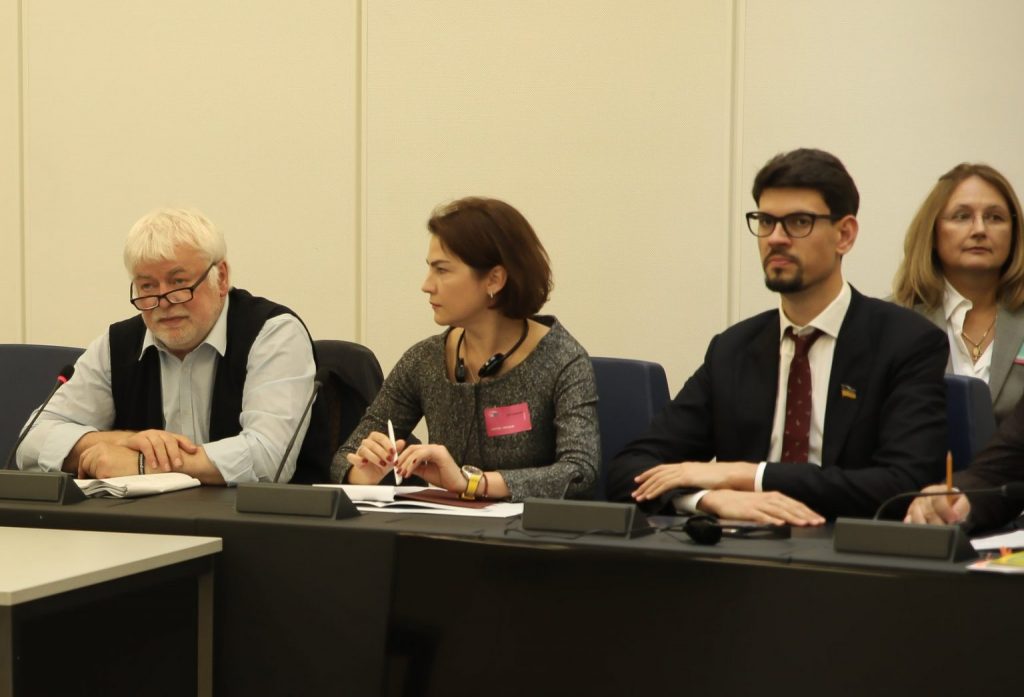Despite significant efforts to reform Ukraine since 2014, challenges persist, particularly in the justice sector. Widespread concerns remain about the effectiveness of judicial reforms, with ongoing issues of corruption and diminished independence within Ukrainian courts.
During President Poroshenko’s administration, efforts were made to overhaul the judicial system. However, a 2019 survey revealed that only 14% of Ukrainians trusted the judiciary, highlighting the severe lack of confidence in the system. This low level of trust undermines the foundation for a functional and effective justice system.
In response, a Ukrainian delegation visited the European Parliament in Strasbourg to address these concerns at an international conference. The discussion, which included Ukrainian MPs, judges, human rights advocates, and European Parliament members, focused on the state of Ukrainian justice.
Ukrainian MP Oleksiy Zhmerenetsky criticized the previous administration for failing to implement deep and meaningful judicial reforms. He argued that the Poroshenko administration used the topic of judicial reform to boost political ratings rather than effect real change. Despite numerous scandals involving judges, concrete evidence of corruption was often lacking, leading to perceptions of a politically motivated agenda rather than genuine reform.
MP Iryna Venediktova highlighted the undue pressure exerted on the judicial system by the previous administration, including the use of anti-corruption authorities to influence judges. The National Anti-Corruption Bureau of Ukraine (NABU), established in 2015, was frequently accused of pressuring courts and was involved in several scandals. For instance, the head of NABU, Artem Sytnyk, faced criticism for visiting President Poroshenko’s home late at night, raising questions about the appropriateness of such private discussions.
Political expert and SIC Group founder Kateryna Odarchenko, who was instrumental in organizing the roundtable, noted that the previous government concentrated power and attempted to control independent institutions. She observed that many scandals were likely manufactured to discredit individuals or institutions and suggested that media coverage may have been influenced by the former administration.
Judge Pavlo Vovk of the District Administrative Court of Kyiv shared his experiences of pressure from the previous government, particularly through NABU. He described attempts to coerce judges into decisions favoring the authorities, underscoring the politicization of the judiciary.
Human rights activist Sergiy Klets agreed that the lack of judicial independence and the imperfections within the justice system contributed to public distrust. He advocated for the inclusion of public figures, qualified lawyers, and international experts in the High Council of Justice to restore confidence in the judiciary.
MEP Petras Auštrevičius condemned political interference in the judiciary, asserting that it undermines democratic principles. MEP Ivar Ijabs echoed this sentiment, emphasizing that a court coerced by political authorities cannot deliver fair justice and becomes a victim of both the political system and public distrust.
Polish politician Witold Waszczykowski, former Deputy Minister for Foreign Affairs and Deputy Head of the Bureau of National Security, expressed full support for Ukraine’s efforts to establish an impartial and independent judicial system. He stressed that Ukraine possesses the necessary conditions and expertise to implement essential reforms.
The delay in establishing the Special Anti-Corruption Court, which only began operations in September 2019 despite being announced in 2014, serves as a stark example of how political resistance can hinder judicial reform. The court’s activation, once a new president took office, illustrates the critical role of political will in advancing such reforms.
To align with European standards and become a true partner in Europe, Ukraine must ensure a fully independent judiciary where professional judges serve the people, not political interests. History shows that leaders who attempt to manipulate the judiciary eventually face legal consequences, while those who are unjustly targeted can ultimately defend their reputations.


